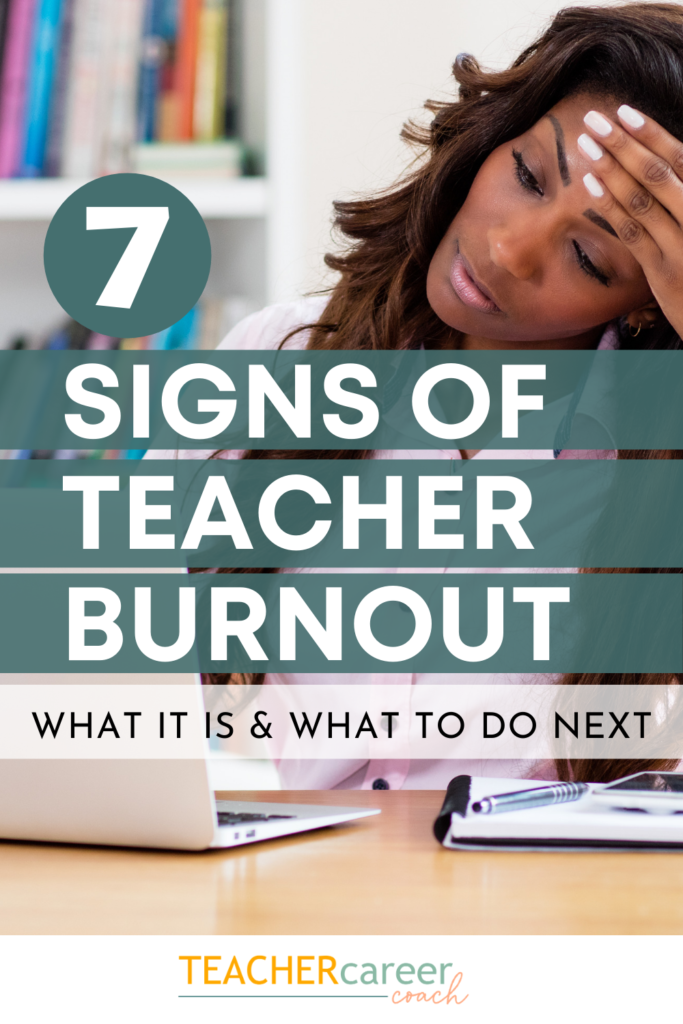
Too Much Teacher Stress Leads to a Mess
Being a teacher is tough. With toxic school cultures, lack of support, low pay and overwhelming workloads, it’s no wonder nearly half of all teachers leave the job within the first five years. Many report work stressors as their primary reason for ditching class.
According to a recent study on teacher stress from the University of Missouri, 93 percent of elementary teachers reported high levels of stress from their job. The exodus of teachers costs school districts billions of dollars every year. If you find yourself with stress-related illnesses, it may be time to look into a career change for teachers.
What Causes Teacher Stress?
When young teachers first enter the classroom, the reality of teaching in the United States sets in and that shiny red apple can get tarnished in a hurry. With overcrowded classrooms, unrealistic workloads and expectations, dealing with disruptive students and demanding parents, teachers often feel under attack and not respected, so it’s easy to see how a teacher can become disenfranchised, cynical and sick.
During my last year of teaching, I would arrive to work early and stay late setting up lesson plans and grading papers. I missed out on a lot of personal time with my family and friends due to an overwhelming workload. Because of the pressure put upon teachers to not fail or let our students down, we take on more than we can handle. Needless to say, I burned out pretty quick.
And it’s not just teachers that suffer from too much on-the-job stress; teachers in high-stress situations tend to have the poorest student outcomes. Teacher guilt will often leave us staying in the classroom much longer than is healthy and sacrificing our health.

Toxic School Culture
In one school where I taught, the culture was so bad that the stress was literally making me sick. I had stomach issues, constant headaches, always felt worn out, and cried many times on my drive into work. When you don’t feel like you are getting the proper support or funding that you need to do your job well, you feel like a hamster spinning in a wheel with no end in sight.
School administrations that do not lay out a clear plan of success for students and staff or there is not a sense of dialogue to overcome problems, open the door for toxicity. Teacher productivity decreases, absenteeism increases, and negativity creeps in like a heavy fog. This costs the school districts the much-needed funds that could be used to invest in better school culture and it robs students of the well-deserved education they should be getting.
If you find yourself in this type of situation and you are beating your head against the wall waiting for change that will never come, then you need to ask yourself if the job is worth the stress.
Symptoms of Teacher Stress
Something to look out for when you think work may be adding too much stress to your life is constant exhaustion instead of excitement, which can lead to anxiety, depression, and a low quality of life. If you haven’t had time to see any family or friends in months and you are struggling to pay your bills, then it may be time for a career evaluation and/or change.
If teaching has you in the doctor’s office more than you should be and your mental and physical health is suffering, you have to start putting yourself first. Chronic stress can lead to really bad physical health issues, such as heart disease, high blood pressure, heart attacks, and stroke.
How to Battle Teacher Stress
Your health is important, and you need to make time for you. In order to build a better life, you need to find more balance. Exercise on a regular basis at least 150 of moderate to vigorous activity each week. You can take a spin class, attend yoga or a good old-fashioned jog. If you have dogs, then taking your pets with you to exercise will also you and them the proper exercise. Plus, it will make you happier, too.
Practice good sleep habits and know when to shut it down. Let your body be your guide, and when it tells you it is time, it is time. Eating healthier foods can also help with stress. When your body gets the nutrients it needs, your immune system will kick in and battle the stress for you. Start journaling your thoughts and feelings. This is a good way to vent and to keep track of your emotions. If you start to notice too much negativity, then practice gratitude to bring back some positivity to tips the scales into your favor.


